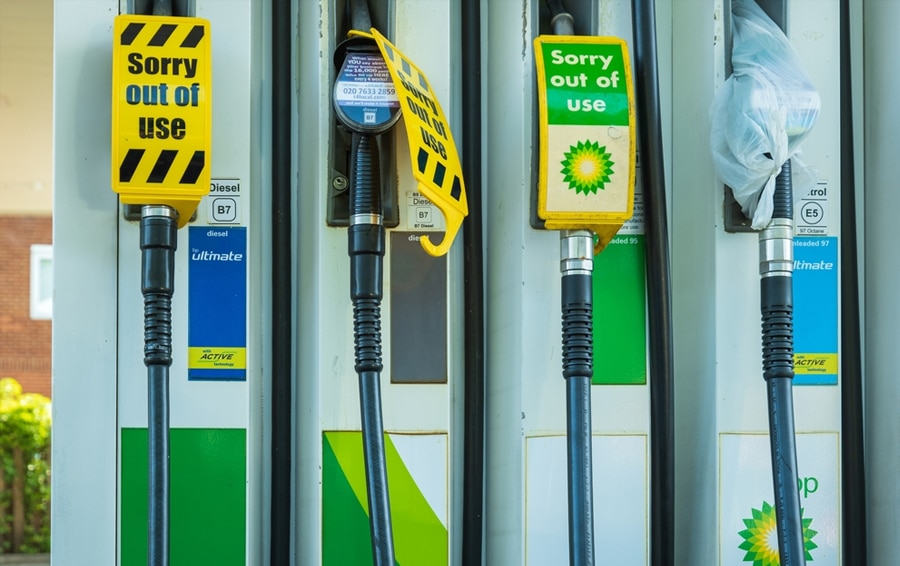A new five point fuel plan for fleets has been launched by FleetCheck as petrol and diesel shortages continue across the country.
Peter Golding, managing director at the fleet management software company, said that the plan contained basic advice that company car and vans operators could adopt quickly and easily, and also longer term suggestions.
“We’ve been discussing internally how we can help fleets through the current crisis and the fact is that there is no easy answer. If drivers simply can’t get hold of the fuel they need, then there is no real solution.
“However, the advice we are providing here should help fleets to maximise mileage from the fuel that they can obtain and also to understand their fuel use better over time, in case similar situations arise in the future.
“There are measures that can be put in place quite easily, such as drivers using their vehicles in a more fuel efficient manner and adopting more fuel efficient driving styles, that can have a really positive and immediate impact on fuel consumption.”
The five point plan is:
1.Encourage more economical driving. Ask employees to drive smoothly by accelerating and braking gently, taking maximum notice of what is happening on the road ahead. Change up early and, as always, stick to the speed limit or lower – drive at 70mph and you’ll use up to 9% more fuel than at 60mph and up to 15% more than at 50mph, according to the AA. always
2.Explain to drivers how to prepare their vehicles. Some simple steps can have a positive impact on fuel consumption. Remove roofracks or other heavy items from vehicles that don’t need to be carried. Only use power-hungry devices such as air conditioning and rear window demisting when needed. Tyre pressures should checked as they can have a significant effect. Also, don’t leave the vehicle running before use.
3.Measure your fuel use. A large number of fleets simply don’t know how much fuel they use overall, per driver or per vehicle. The easiest way to put a monitoring system in place is to buy all petrol and diesel through specialist fuel cards. You can then access the data collected as software-generated reports.
4.Analyse your fuel data. Fleet software provides the means to analyse the information you have gathered – enabling you to identify drivers and vehicles that are not achieving the kind of fuel consumption that you expect.
5.Don’t be afraid to challenge employees. The single largest factor affecting fuel economy in the real world is driver behaviour. A disparity in fuel economy of more than 30% is not unusual between drivers in identical vehicles on similar routes. Let drivers know that they are being monitored, talk to those who seem to be using excess fuel, and offer help and advice.
Peter added: “We’ll be distributing this advice to our 1,300 customers and making it freely available through channels such as social media. Also, we are working individually with some fleets to help them maximise their fuel consumption.”






